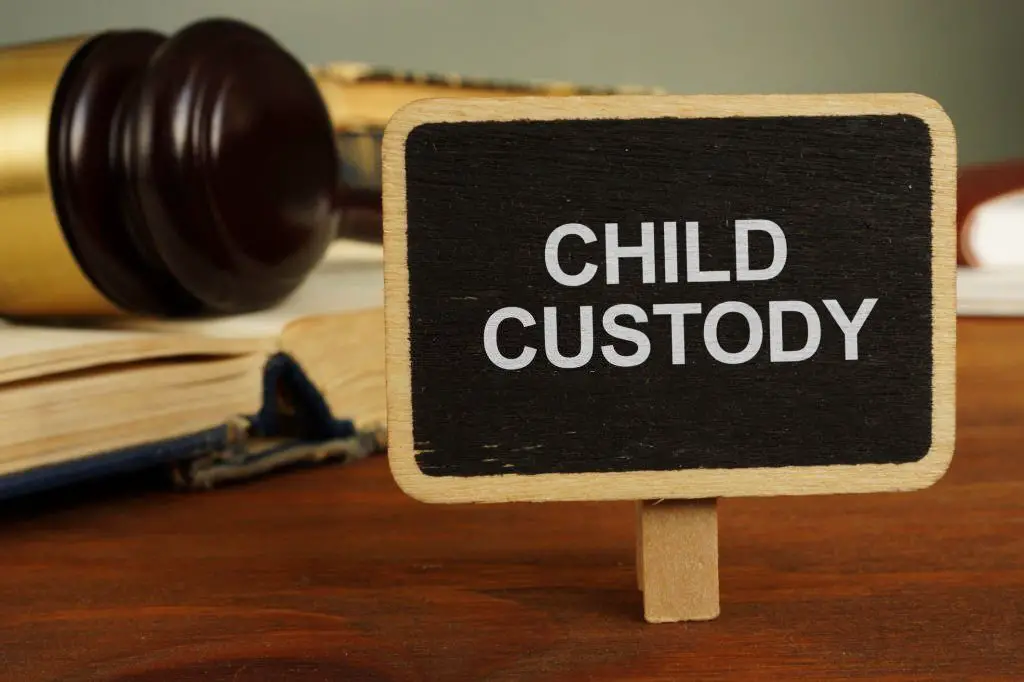
The laws governing child support in Kentucky are different from that of other states. KY child support law sets how much the child maintenance should be, and the duration of such payments, plus it seeks to guide parents in exceptional cases such as deviation, support for disabled children, and retroactive support.
As you may already know, child support (or child maintenance) is a continuous monetary payment made by a spouse to another spouse, guardian, caregiver, or the state for the upkeep of children after a divorce or separation.
The person who is required to pay child support is referred to as the “obligor,” whereas the person who is eligible to receive child maintenance is referred to as the “obligee.”
What are KY Child Support Guidelines?
In Kentucky, the parents’ “combined monthly adjusted parental gross income” determines how much child support is owed to whom. If the parents’ combined gross income exceeds the amounts in the highest tiers of the guideline table, the court may utilize its judicial discretion to decide the amount of child support due.
Parents must contribute to the child’s health and childcare costs in addition to the amount specified by the recommendations. They may also be obliged to pay for additional expenditures, such as those associated with the child’s schooling.
While parents may agree to pay a sum that differs from the recommended amount or choose to divide it in a different way, they require a court’s permission to do so. A court may also alter the amount of child support if it finds that it is unfair to the paying parent or does not adequately sustain the child.
What does Child Support Cover in Kentucky?
The goal of the child support system is to make sure that the child maintains an adequate living standard. All child support payments are made with the child’s best interests in mind. Child support payments in KY are meant to cover the basic necessities of the child.
The Court will divide the cost of health insurance coverage for the child and the reasonable and necessary child care costs incurred due to employment, job search, or education leading to employment between the parents in proportion to their combined monthly adjusted parental income, in addition to the amount ordered under the child support guidelines.
Child Support When One Parent Lives Outside Kentucky
To enforce child support orders beyond state boundaries, each state has to have the Uniform Interstate Family Support Act (UIFSA) in place. Kentucky is no exception.
The UIFSA ensures that child support processes and procedures are consistent across states. When one spouse lives in another state where the Kentucky courts do not have authority to adjudicate or enforce orders, UIFSA reduces these bottlenecks.
As a result of the UIFSA, a KY child support attorney can take legal action against a spouse who now lives in another state to enforce a child support order.
How is Child Maintenance Calculated In Kentucky?

Learn How Child Maintenance Calculated In Kentucky
To calculate child maintenance, Kentucky uses the Income Shares Model which takes into account the gross income of both parents. The child support calculation is based on both partners’ income and takes into account whether the party receiving it has sole or shared physical custody. The calculation of child support is based on a portion of the parent’s combined income.
In contrast to many other states, Kentucky does not automatically reduce the amount of child support based on parental time. All these can be done using the Kentucky child support calculator.
Kentucky Child Support Calculator and Worksheet
While a child support calculator can be used to estimate child support, it is not a guarantee of the final amount of child maintenance that the judge will order. A child support worksheet is a form used by the KY courts (or negotiating spouses) to approximate the basic child support obligation of the parents.
Regardless of which approach you use, spouses can decide on a child support sum and amend the worksheet accordingly to ensure it accurately reflects their agreement. Both establish a presumption duty to pay child support.
The final decision on the amount of child support is made by the administrative law judge, administrator, or court.
Gross Income Included in Calculating Child Maintenance
For child support calculation purposes, gross income includes:
- all wages and salary, including commissions, military pay, tips, overtime, and bonuses
- self-employment income
- interest and dividends
- net rental income from property the parent owns
Even jobless parents are likely to have some sources of income, like:
- severance pay
- unemployment benefits
- retirement benefits
- veterans’ benefits
- disability benefits, or
- workers’ compensation awards.
A KY family court judge may also allocate an income value to parents who do not currently have income-earning employment (like a second house). If a jobless parent inherits assets that can be sold, for instance, the judge may include the property’s market value as a part of such parent’s income.
Where parents willfully go unemployed or underemployed in order to avoid paying child support, judges may infer (assign) income based on what they are supposed to be earning.
Net Income for KY Guidelines

How to determine Net Income for KY child support
Remove the following costs from the total gross income to get the parent’s net income for paying child support in Kentucky:
- Social Security taxes, or any mandated retirement plan contributions if the parent does not pay those taxes.
- Income taxes, both federal and state (based on the tax rate for a single person claiming one exemption)
- union dues
- The KY court has ruled the parent to pay the child’s health and dental insurance premiums, as well as additional medical bills.
Parents who have already paid child support for another kid or children (from a previous relationship) may be eligible for a refund.
Is Medical Health Insurance Part of Child Support in Kentucky?

Medical Health Insurance and Child Support in Kentucky
Yes, in addition to the amount of support determined by the guidelines in Kentucky, the parents will be responsible for the child’s health and dental insurance.
Whereas the noncustodial parent is presumed to provide coverage, this can readily be transferred to the other parent if it makes good sense.
For instance, suppose the custodial parent’s employer offers healthcare insurance for the dependent but the noncustodial parent does not.
Factors Kentucky Courts Consider Before Ordering Maintenance
The following factors must be considered by the court when determining whether Kentucky Family Code applies:
- The age of the child and needs; the parents’ ability to assist
- Financial resources available to the child
- For a set period of time, you have custody and access to a child.
- An increase or decrease in the obligee’s earnings or income due to the obligee’s property and assets
- Child care expenses incurred by either parent in order to keep a job
- any other children under the care of either party
- Any other children under the care of either party
- What kind of alimony or spousal maintenance is being paid or received;
- Obligor or obligee receives an automobile, house, or other benefits from his or her employer or business entity.
- The parties or the child’s special education, health-care, or other expenses
- The cost of traveling to obtain custody of and access to a child.
- Cash flow from any estate and assets, including real estate, personal property, and business property, can be positive or negative.
How to Challenge or Modify Child Support Order
A parent may submit a motion (written petition) to modify child support at any time if there has been a significant change in circumstances since the order was made. Kentucky typically considers a 15 percent change in either parent’s income to be substantial.
A change in support, however, may also be justified by the arrival of a new child, a job loss, or a parent’s subsequent marriage. But it’s important to keep in mind that if either parent brings a case for modification within a year of the entry of a child support order, they must demonstrate at least a 25% change in either parent’s income.
Steps to Collect Child Support in Kentucky

Steps to Collect Child Support in Kentucky
Getting a child support order in place is only half the struggle in Kentucky. You’ll also have to collect the money itself. A noncustodial parent is responsible for paying the full amount of child maintenance per month as imposed by the court. Here are the steps for getting child support in KY
1. Open a Child Support Case
Complete a child support application with your local child support agency/office
2. Locate the Other Parent
To begin the child maintenance procedure in KY, the child support services (CSS) office will use the information provided by the applying parent, as well as information gathered from other sources, to try to locate the other parent.
3. Establish Parentage
It’s critical to establish a legitimate relationship with the child when the other parent has been located. The state will assist you in locating the sufficient means. Parents can choose to acknowledge their parentage voluntarily or organize a genetic screening.
4. Establish a Child Support Order
A Kentucky child support order specifies how much the other parent should pay and includes details such as the payment schedule and provisions for the child’s health insurance.
5. Set Up Payment
Deducting child maintenance from a parent’s paycheck and transferring the money to the other parent or guardian is the most typical method of payment. It’s a simple way to make and track child support payments.
6. Enforce the Support Order
Your KY child support services will enforce the child support order if the noncustodial parent does not pay the full amount or does not pay any. Exposing overdue child support payments to credit bureaus, intercepting income tax refunds, and Withholding child maintenance from unemployment or worker’s compensation benefits are examples of other enforcement measures.
7. Review the Order
Three years after the order is issued, either parent can request their local child support office to revise it. They can ask for a reassessment sooner than three years if a parent’s situation has changed significantly, such as loss of employment or imprisonment.
Kentucky Child Support Services Office, Number and Login Portal
Kentucky Child Support Enforcement
Address: 730 Schenkel Ln,
Frankfort, KY 40601,
United States
Phone: +1 800-248-1163
Website: https://csws.chfs.ky.gov/csws/
Retroactive Child Support Arrears
Parents who fail to make support payments for more than six months may be found in contempt of court and subject to fines of up to $2,000, jail time, and potentially felony charges.
The above-mentioned effects will not occur if one payment is missed. But even a single missed payment could make it challenging for parents to make up their missed payments, which might result in delinquency.
How to Enforce Child Support in KY
The courts provide a number of options for obtaining payment if your co-parent has failed to do so voluntarily, including taking direct withdrawals of the money you are owed or using other coercive measures to ensure compliance.
- Orders for wage withholding:
- affix liens to real estate
- A defaulter’s checking or savings accounts may be raided by the state to collect unpaid child support obligations from unemployment checks, Social Security payments, lottery winnings, tax refunds, or Workers’ Compensation benefits.
- The state has the right to revoke a violator’s professional, sporting, or personal driver’s license.
- If any parent is $2,500 or more in arrears on child support, the U.S. Department of State may refuse the defaulter a passport.
- You or your family law lawyer may ask the court to hold your ex in contempt of court.
If you feel the arrears are being demanded wrongly, you can learn how to get child support arrears dismissed HERE.
How to Pay Child Maintenance in Kentucky
In Kentucky, parents can pay child maintenance in a variety of ways, as long as your order doesn’t state otherwise:
- by debit or credit card,
- mail,
- check
- bank transfer
- direct deposit
- income withholding, or
- auto-draft from a bank account.
How to Check your Child Support Payment History in KY

How to Check Child Support Payment History in KY
When there are disagreements between the parents and a need to confirm how much money is owed, child support payment records are extremely beneficial.
For more information and how to check child support payment history in KY, click here.
When Does Child Support End in Kentucky?
Unless the child is still enrolled in high school, in which case child support would continue through the academic year in which the child turns 19, a child support order in Kentucky expires when the child is 18 years old.
If the court so orders, child support may continue after the child turns 18 (or 19 if they are still in high school) in some situations.
Unless that child is the youngest or a different amount of child support was specified in the child support order, the need to pay support does not automatically terminate when one of the children turns 18 (or 19 if they are still in high school) if the order covers more than one child.

Understanding Custody Rights of a Child in Kentucky
How Does KY Child Support Work if one Parent Has no Job?
The Court may now determine, in accordance with the new Kentucky legislation, that a parent is voluntarily unemployed or underemployed without requiring proof that it was deliberate.
After taking into account their assets, place of residence, employment and earnings history, skills, education, age, health, criminal record, work history, local labor market, prevailing wage, and other circumstances that are employment barriers, the court may impute income to them.
Is Child Support Tax Deductible in Kentucky?
NO. In Kentucky, child support payments are neither taxable to the recipient nor tax-deductible by the payer as stated by the IRS. Don’t include child support payments when calculating your gross income to see whether you have to file a tax return.
However, either parent may be eligible for a dependency exemption per child. If the parents can’t agree on who receives the exemption, the judge will set out the terms in a court order.
Getting a Skilled Kentucky Child Support Attorney
If you are involved in a family law matter in Kentucky, you may have a lot more questions than answers at this moment. You are not alone; Correspondence with members has shown that using the services of specialized child support attorneys saves a lot of hassles and most importantly, ensures you come out as a winner for you and your kid.
If you need to fight your child maintenance cause in KY with confidence, then you’ll need attorneys that are both empathetic and strong.
Luckily, we have compiled a database of these expert child support lawyers and made them available for the convenience of our members. You can reach them at the click of a button for legal advice and representation on child maintenance.
Click Here to Get our Free Kentucky Alimony recommendation.
Kentucky Resource
- Kentucky Child Adoption Guidelines
- Kentucky Childcare Guidelines
- Kentucky Child Custody and Visitation Guidelines
- Kentucky Child Support Guidelines
- Kentucky Divorce Guidelines
- Kentucky Marital Property Guidelines
- Kentucky Spousal Support Guidelines
- How to Check Kentucky Child Support Payment History
- Kentucky Child Support Calculator
Child Support Laws in all 50 States
A - Alabama | Alaska | Arizona | Arkansas
C - California | Colorado | Connecticut
D-H - Delaware | Florida | Georgia | Hawaii
I - Idaho | Illinois | Indiana | Iowa
K-L - Kansas | Kentucky | Louisiana
M - Maine | Maryland | Massachusetts | Michigan | Minnesota | Mississippi | Missouri | Montana
N - Nebraska | Nevada | New Hampshire | New Jersey | New Mexico | New York | North Carolina | North Dakota
O - Ohio | Oklahoma | Oregon
P-S - Pennsylvania | Rhode Island | South Carolina | South Dakota
T-U - Tennessee | Texas | Utah
V-W - Vermont | Virginia | Washington DC | Washington State | West Virginia | Wisconsin | Wyoming




